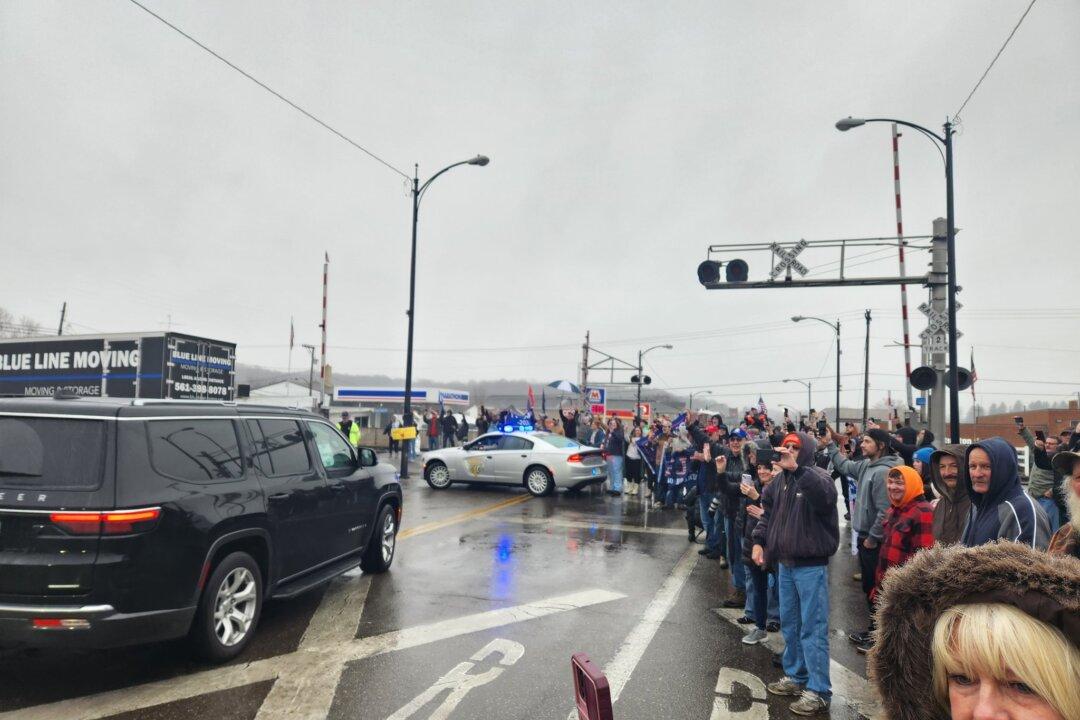EAST PALESTINE, Ohio—Downtown East Palestine, Ohio, on Feb. 22 looked much like it does on a Friday night during high school football season—mostly abandoned and quiet.
However, there was a different sort of vibe in another part of the village, when, instead of gathering for a football game, residents lined the streets near the East Palestine Fire Department hoping to get a glimpse of former President Donald Trump.





